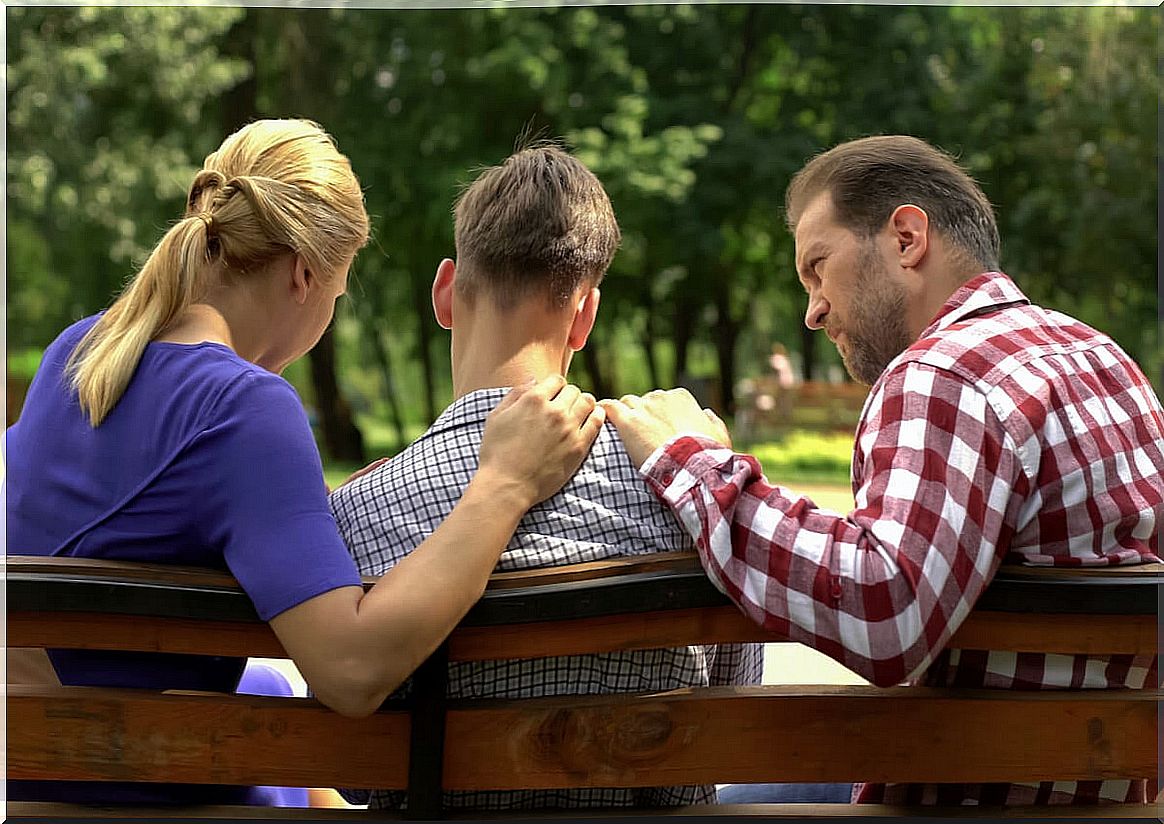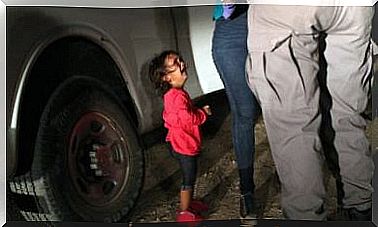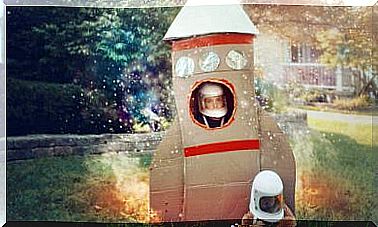Conflictive Adolescents: How To Deal With Them?

What does it mean for an adolescent to be conflictive? What does this translate to? How to deal with conflictive adolescents? If we refer to rebellion (defiance or disobedience of parents, rules, etc.), we find different types of it. We can even speak of two types of rebellion, roughly .
There is a first type of rebellion that appears already in preschool age and that gradually increases during the evolutionary stage. As for the second type, we are talking about a behavior that appears beyond the age of ten and that is normally related to the beginning of the institute. In the latter case, there would be environmental variables or hormonal changes that could largely explain the adolescent’s conflictive attitude.
Troubled teens: what should you know?
We are going to offer in this article some guidelines to act with children or adolescent patients. Finally, we will talk about a specific therapy that is offering promising results in this population.

Behavior problems
Before we go into the guidelines, we will try to answer the following: how does a conflictive adolescent behave? We have spoken at the beginning of rebellion. They can show behaviors such as aggression, lies, disrespect, etc.
We must bear in mind that adolescence is a complicated stage on an emotional level, because in addition to the alteration of hormones that the arrival to this new stage implies, we must add important changes and a strong identity crisis.
So, when it comes to acting with them, it is best to try to be cautious and empathetic, although sometimes that is not easy. Finally, to say that in serious cases, it is best to ask a specialist for help. Then we will talk, by way of summary, about how this conflict of which we speak is usually detected.
How do we detect these behaviors?
It is often parents who detect a change in behavior in their children. This translates, for example, into the rejection of certain activities or objectives that previously did motivate them. Other times, conflict translates into great opposition from the boy or girl, and it is also quite easy to detect through their behaviors.
If we talk about a higher level of conflict, we find adolescents who cause problems inside and outside the home, who get into trouble, who feel lost or who have a serious basic identity crisis.
We can also detect these conflicting attitudes through lies, loss of enthusiasm for things, sadness … This is important for us to be clear about, since many times under all that layer of aggressiveness or rebellion other types of feelings are hidden, such as fear, insecurity, loneliness or sadness.
How to act with them?
How to deal with conflictive adolescents? It will depend a lot on our role (or role) in your life ; That is, it is not the same to be your father or mother, your brother, your psychologist, teacher, etc. Therefore, we are going to offer some generic guidelines:
- Encourage communication spaces with him.
- Work the link (the relationship).
- Find out what happens to him (sometimes under so much aggressiveness sadness hides).
- Take time for it.
- Negotiate with him.
- Avoid judging him.
- Set limits but be flexible.
- Use behavior modification techniques (important to reinforce appropriate behaviors).
- Boost your self-esteem, value it.
- Talk to him / her from empathy (put yourself in his / her place!).
- Consult a specialist (especially in more serious cases).
- Be consistent with him.
- Practice by example.
On the other hand, the Guide for adolescent care (2015), prepared by the Andalusian Society of Family and Community Medicine, proposes a series of strategies focused on offering comprehensive care to adolescents in consultation, from the medical field, although it can also be apply in psychotherapy. They would be the following:
- Respect confidentiality : everything that is discussed in consultation should stay there (except in cases where there is risk for the adolescent himself, for others or for society in general).
- Provide the adolescent with an intimate and safe space where they can freely express their doubts.
- Provide you with information on health resources and services available to you.
- Show attention, interest and respect for everything they comment, in order to promote the therapeutic alliance.
- Go explaining his evolution and achievements, both to him and to his parents, promoting the responsibility of the adolescent in caring for their health.
- Encourage teamwork with your family and educators, in order to ensure multidisciplinary care.
Scene-based family psychodramatic therapy
This type of therapy (in English SB-PFT ) turns out to be an innovative intervention that begins to show positive results with conflictive adolescents. Specifically, it is used to improve personal relationships between teenagers with problems and their parents. It is a type of therapy that integrates the principles of systemic family therapy and psychodrama through a multi-family group methodology.
In a study published in the Family Process journal , developed by Bárbara Lorence, a researcher at the University of Huelva (UHU), we found the first evidence on the efficacy of this intervention.
One of the keys to this methodology is that the adolescent’s voice is very important here. In addition, different family systems also intervene in the sessions with them. What is worked from this therapy? Basically two main themes:
- The conflict between conflictive parents and adolescents.
- The search for possible solutions to conflicts.

Final reflection
We have provided some basic ideas on how to act with conflictive adolescents from empathy and understanding, although in reality it is always a more complex issue than the scripts establish. As we all know, adolescence is a complicated stage of life that many are still learning to manage and as a result of this (and other factors), behavioral disorders or disorders, substance-related disorders (for example drugs), disorders Mood…
Each disorder or problem will require specialized treatment. As parents or educators, accompanying them is both a challenge and a necessity. Approaching it as an accompaniment, as a helping hand and as a small push that helps them fly can help us in this process, since, let’s not forget, at this stage they will define many aspects of their identity.









